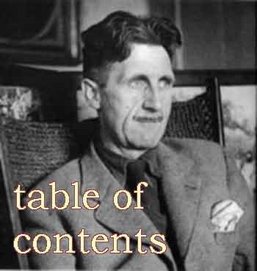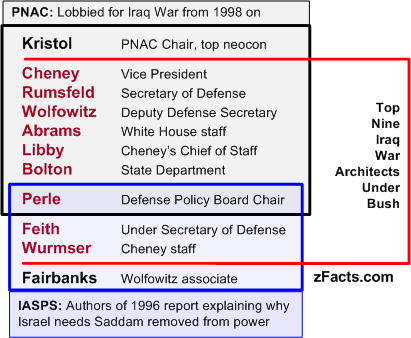
Calls for Olmert to resign after nuclear gaffeLuke Harding in Berlin and Duncan CampbellTuesday December 12, 2006Guardian Unlimited
The Israeli prime minister, Ehud Olmert. Photograph: EPA
Israel's prime minister, Ehud Olmert, was today trying to fend off accusations of ineptitude and calls for his resignation after he accidentally acknowledged for the first time that Israel had nuclear weapons.
After decades in which Israel has stuck to a doctrine of nuclear ambiguity, Mr Olmert let slip during an interview in Germany that Israel did indeed have weapons of mass destruction. He told Germany's Sat.1 channel last night: "Iran, openly, explicitly and publicly, threatens to wipe Israel off the map. Can you say that this is the same level, when they are aspiring to have nuclear weapons, as America, France, Israel and Russia?"
Mr Olmert's admission comes less than a week after the incoming US secretary of defence, Robert Gates, speculating at a Senate confirmation hearing on Iran's possible motives for trying to build nuclear arms, suggested that Israel had the bomb.
Speaking in Berlin after a meeting today with Germany's chancellor, Angela Merkel, Mr Olmert attempted to backtrack. He insisted that Israel's doggedly held position of nuclear weapons ambiguity had not changed.
"Israel has said many times - and I also said this to German television in an interview - that we will not be the first country that introduces nuclear weapons to the Middle East," Mr Olmert said. "That was our position, that is our position - nothing has changed."
But his remarks did nothing to assuage criticism in Israel. Opposition leaders accused him of "irresponsible" bungling and said he should resign.
"This causes great harm to Israel. We are in the midst of a huge [diplomatic] onslaught against Iran's attempts to make a nuclear bomb," former foreign minister Silvan Shalom, a member of the rightwing Likud party, said on Army Radio. "We always face the same question which our enemies ask: 'Why is Israel allowed to [have a bomb] and not Iran?'"
Yossi Beilin, of the leftwing Meretz party, which is also in opposition, questioned Mr Olmert's fitness to lead. "The prime minister's amazing statement regarding nuclear capability indicates a lack of caution bordering on irresponsibility," the Yedioth Ahronoth newspaper quoted him as saying.
Mr Olmert's domestic approval ratings have plummeted since this summer's war against Lebanon's Hizbullah guerrillas.
Aides to the prime minister tried frantically to limit the damage. His spokeswoman, Miri Eisin, who is accompanying Mr Olmert on his visit to Germany and Italy, said it did not mean Israel possessed or wanted to acquire nuclear weapons. "No, he wasn't saying anything like that."
Israel has long declined to confirm or deny having the bomb as part of a "strategic ambiguity" policy that it says fends off numerically superior Arab enemies. But Arabs and Iran see a double standard in US policy in the region.
By not declaring itself to be nuclear-armed, Israel gets round a US ban on funding countries that proliferate weapons of mass destruction. It can thus enjoy more than $2bn (£1.02bn) a year in military and other aid from Washington.
Israel's main atomic reactor, officially for civilian use, became operational in the early 1960s. The CIA first concluded that Israel had begun to produce nuclear weapons in 1968, but few details emerged until 1986 when Mordechai Vanunu, a former technician at the nuclear facility, gave the Sunday Times detailed descriptions that led defence analysts to rank the country as the sixth largest nuclear power.
Mr Vanunu, who was released in 2004 after spending 18 years in prison, welcomed the prime minister's admission. "Obviously, I don't welcome the atomic bomb but this openness could lead at last to some realpolitik - and maybe to some real peace."
Mr Vanunu said he believed the admission was not accidental. "My idea is that it was said intentionally. For 20 years they tried to deny me and my story but the policy of cheating and lying didn't succeed. There is now a new defence secretary in the United States and there are also changes taking place in the Arab world, so I think that may have led to the change." Special reportIsrael and the Middle EastWorld news guideIsrael and the Palestinian territoriesMiddle EastGlossaryCommonly used terms in the Middle East conflictInteractive guideHow the Israelis and Palestinians came to warIsrael enters GazaGovernment sitesIsraeli Knesset (parliament)Israeli ministry of foreign affairsIsraeli government siteOffice of the Israeli prime ministerPalestinian Ministry of InformationMediaHa'aretz (Israel)Israel Insider (Israel)Jerusalem Post (Israel)Maariv (Israel)Arabic Media Internet Network (Palestinian)Palestine Chronicle (Palestinian)Electronic Intifada (Palestinian)Bitter Lemons (Israeli-Palestinian)
The Israeli prime minister, Ehud Olmert. Photograph: EPA
Israel's prime minister, Ehud Olmert, was today trying to fend off accusations of ineptitude and calls for his resignation after he accidentally acknowledged for the first time that Israel had nuclear weapons.
After decades in which Israel has stuck to a doctrine of nuclear ambiguity, Mr Olmert let slip during an interview in Germany that Israel did indeed have weapons of mass destruction. He told Germany's Sat.1 channel last night: "Iran, openly, explicitly and publicly, threatens to wipe Israel off the map. Can you say that this is the same level, when they are aspiring to have nuclear weapons, as America, France, Israel and Russia?"
Mr Olmert's admission comes less than a week after the incoming US secretary of defence, Robert Gates, speculating at a Senate confirmation hearing on Iran's possible motives for trying to build nuclear arms, suggested that Israel had the bomb.
Speaking in Berlin after a meeting today with Germany's chancellor, Angela Merkel, Mr Olmert attempted to backtrack. He insisted that Israel's doggedly held position of nuclear weapons ambiguity had not changed.
"Israel has said many times - and I also said this to German television in an interview - that we will not be the first country that introduces nuclear weapons to the Middle East," Mr Olmert said. "That was our position, that is our position - nothing has changed."
But his remarks did nothing to assuage criticism in Israel. Opposition leaders accused him of "irresponsible" bungling and said he should resign.
"This causes great harm to Israel. We are in the midst of a huge [diplomatic] onslaught against Iran's attempts to make a nuclear bomb," former foreign minister Silvan Shalom, a member of the rightwing Likud party, said on Army Radio. "We always face the same question which our enemies ask: 'Why is Israel allowed to [have a bomb] and not Iran?'"
Yossi Beilin, of the leftwing Meretz party, which is also in opposition, questioned Mr Olmert's fitness to lead. "The prime minister's amazing statement regarding nuclear capability indicates a lack of caution bordering on irresponsibility," the Yedioth Ahronoth newspaper quoted him as saying.
Mr Olmert's domestic approval ratings have plummeted since this summer's war against Lebanon's Hizbullah guerrillas.
Aides to the prime minister tried frantically to limit the damage. His spokeswoman, Miri Eisin, who is accompanying Mr Olmert on his visit to Germany and Italy, said it did not mean Israel possessed or wanted to acquire nuclear weapons. "No, he wasn't saying anything like that."
Israel has long declined to confirm or deny having the bomb as part of a "strategic ambiguity" policy that it says fends off numerically superior Arab enemies. But Arabs and Iran see a double standard in US policy in the region.
By not declaring itself to be nuclear-armed, Israel gets round a US ban on funding countries that proliferate weapons of mass destruction. It can thus enjoy more than $2bn (£1.02bn) a year in military and other aid from Washington.
Israel's main atomic reactor, officially for civilian use, became operational in the early 1960s. The CIA first concluded that Israel had begun to produce nuclear weapons in 1968, but few details emerged until 1986 when Mordechai Vanunu, a former technician at the nuclear facility, gave the Sunday Times detailed descriptions that led defence analysts to rank the country as the sixth largest nuclear power.
Mr Vanunu, who was released in 2004 after spending 18 years in prison, welcomed the prime minister's admission. "Obviously, I don't welcome the atomic bomb but this openness could lead at last to some realpolitik - and maybe to some real peace."
Mr Vanunu said he believed the admission was not accidental. "My idea is that it was said intentionally. For 20 years they tried to deny me and my story but the policy of cheating and lying didn't succeed. There is now a new defence secretary in the United States and there are also changes taking place in the Arab world, so I think that may have led to the change." Special reportIsrael and the Middle EastWorld news guideIsrael and the Palestinian territoriesMiddle EastGlossaryCommonly used terms in the Middle East conflictInteractive guideHow the Israelis and Palestinians came to warIsrael enters GazaGovernment sitesIsraeli Knesset (parliament)Israeli ministry of foreign affairsIsraeli government siteOffice of the Israeli prime ministerPalestinian Ministry of InformationMediaHa'aretz (Israel)Israel Insider (Israel)Jerusalem Post (Israel)Maariv (Israel)Arabic Media Internet Network (Palestinian)Palestine Chronicle (Palestinian)Electronic Intifada (Palestinian)Bitter Lemons (Israeli-Palestinian)







No comments:
Post a Comment